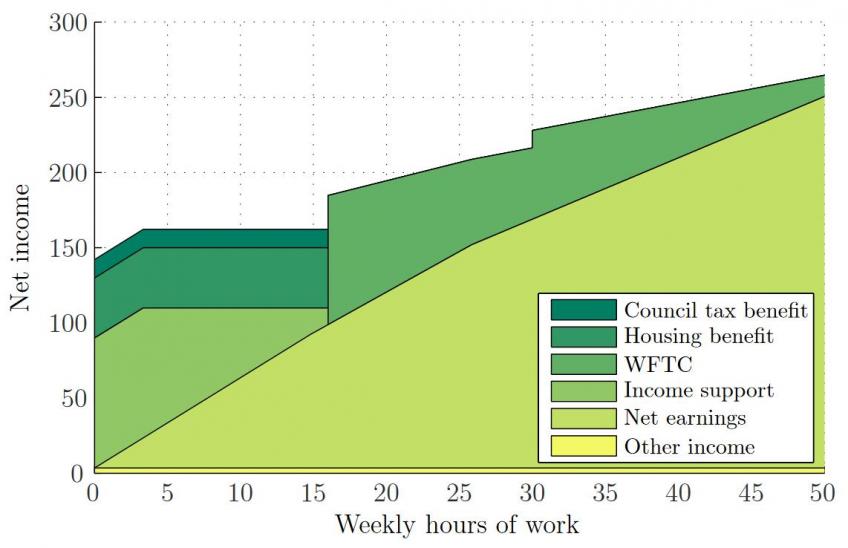The optimal design of low-income support is examined using a structural labour supply model. The approach incorporates unobserved heterogeneity, fixed costs of work, childcare costs and the detailed non-convexities of the tax and transfer system. The analysis considers purely Pareto improving reforms and also optimal design under social welfare functions with different degrees of inequality aversion. We explore the gains from tagging and also examine the case for the use of hours-contingent payments. Using the tax schedule for lone parents in the U.K. as our policy environment, the results point to a reformed non-linear tax schedule with tax credits only optimal for low earners. The results also suggest a welfare improving role for tagging according to child age and for hours-contingent payments, although the case for the latter is mitigated when hours cannot be monitored or recorded accurately by the tax authorities.
Find the working paper here.
Figure. Tax and transfer system interactions









